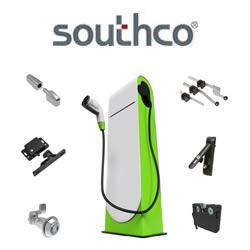As Motorists Face High July 4 Weekend Gas Prices, Alliance to Save Energy Provides Gas-Saving Tips
As motorists planning to travel by car for the July 4 weekend face gasoline prices nearly 30 cents higher than a year ago, the Alliance to Save Energy offers vehicle maintenance and driving tips that can help them achieve better mileage and ease the strain on their pocketbooks.
Washington, DC, June 29, 2005 - As motorists planning to travel by car for the July 4 weekend face gasoline prices nearly 30 cents higher than a year ago, the Alliance to Save Energy offers vehicle maintenance and driving tips that can help them achieve better mileage and ease the strain on their pocketbooks:
Keep tires properly inflated to improve your gas mileage by more than 3 percent and to extend the life and ensure the safety of your tires.
Keep your car properly tuned up to improve gas mileage by about 4 percent.
Use the manufacturer's recommended grade of motor oil to improve your gas mileage by another 1-2 percent. Select motor oil with "Energy Conserving" on the API performance symbol to be sure it contains friction-reducing additives.
Check and replace air filters regularly. Replacing a clogged or dirty air filter can improve your car's gas mileage by as much as 10 percent, and a clean filter keeps impurities from damaging the inside of your engine.
Improve mileage by up to 40 percent by replacing a faulty oxygen sensor.
Curtail aggressive driving. Speeding, rapid acceleration, and rapid braking all waste gas - and curb mileage by as much as 33 percent at highway speeds, according to the U.S. Department of Energy (DOE). Nix jack-rabbit starts, opting instead for slow acceleration from a dead stop.
In addition, speeding wastes gas - and your money. Each mile per hour you drive over 60 mph is like paying an extra 10 cents per gallon, according to DOE.
When buying a new vehicle, think high gas mileage. Check out the DOE website, www.fueleconomy.gov, and the ACEEE website, www.greenercars.com, for information on fuel-efficient vehicles. Learn about current electric drive vehicles on the Electric Drive Transportation Association website, www.electricdrive.org.
Get a $2,000 federal tax deduction this year when you purchase a hybrid-electric car. Next year, the deduction drops to $500.
If you own more than one vehicle, drive the one that gets better gas mileage whenever possible.
Pack lightly when traveling, and avoid carrying items on your vehicle's roof. An extra 100 pounds in the trunk cuts a typical car's fuel economy 1-2 percent.
Avoid idling, which gets 0 mpg. Cars with larger engines typically waste even more gas at idling than cars with smaller engines.
Combine your errands into one trip and plan your routes carefully to drive fewer miles and use less fuel.
If available, use your vehicle's overdrive gear when appropriate to reduce engine speed, save gas, and decrease engine wear.
Use cruise control to help cut fuel consumption by maintaining a steady speed during highway driving.
When renting a car, ask for a model that gets better fuel economy. Also, remember to fill up the tank before returning the car to the rental company, which always charges much higher gas prices - and sometimes an extra gas surcharge.
Carpool and use public transportation whenever possible. And consider telecommuting if your employer allows it.
Protect your health and your pocketbook by walking to your destination whenever possible. You'll lose weight, lower stress, save gas and money, and reduce pollution.
Find additional tips for saving fuel and money from the American Automobile Association at http://www.aaanewsroom.net/Files/gaswatch02.pdf.
See Alliance gasoline-saving tips in Spanish at www.ase.org/content/news/detail/1608.
###
The Alliance to Save Energy is a coalition of prominent business, government, environmental, and consumer leaders who promote the efficient and clean use of energy worldwide to benefit consumers, the environment, economy, and national security.
Featured Product

